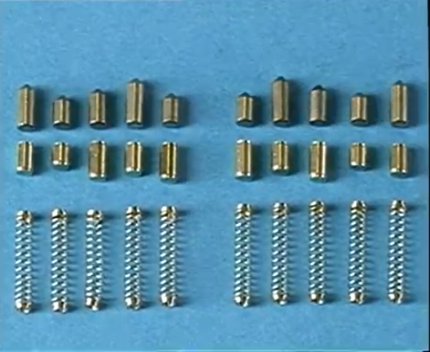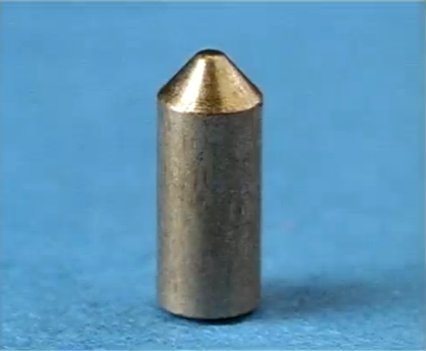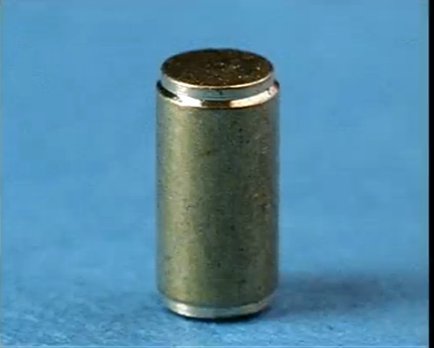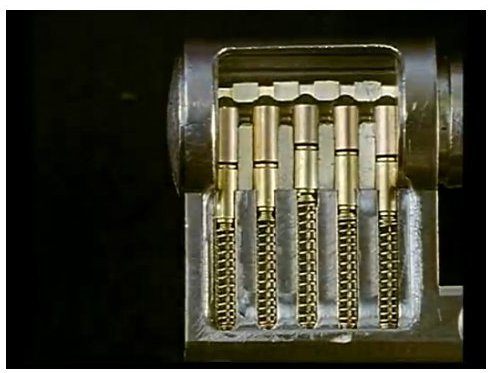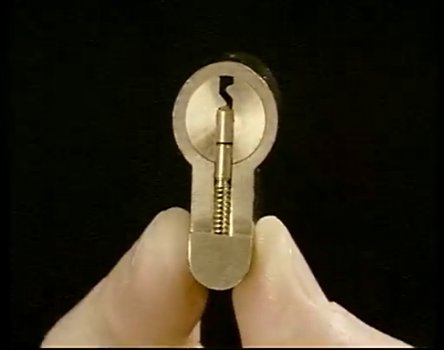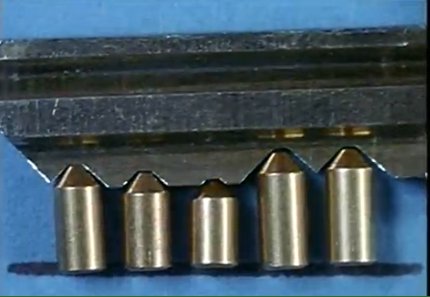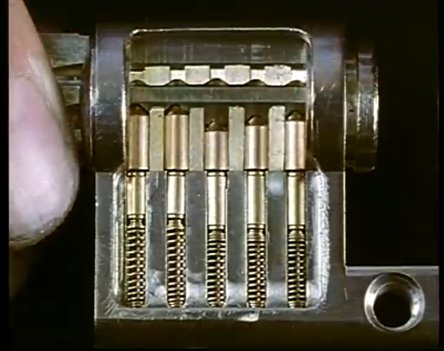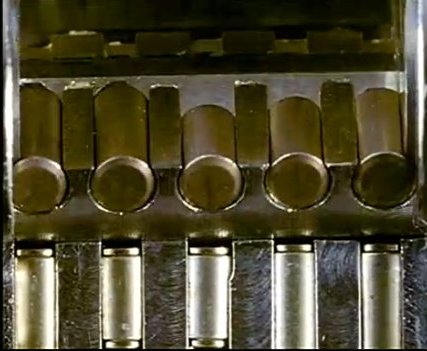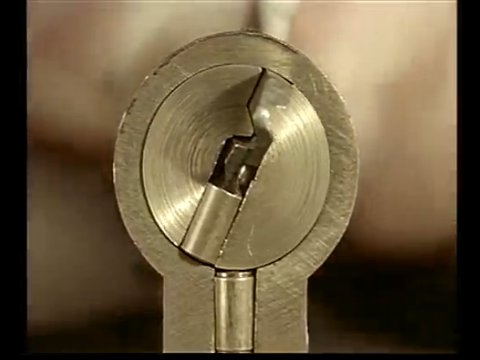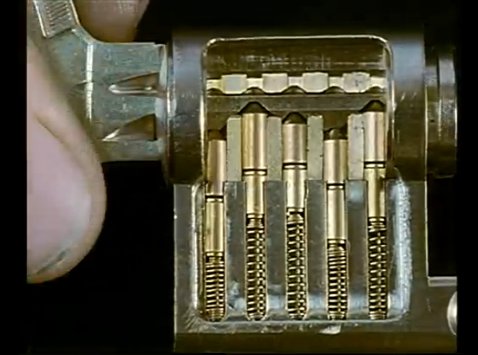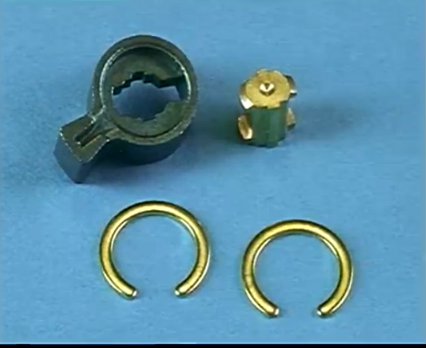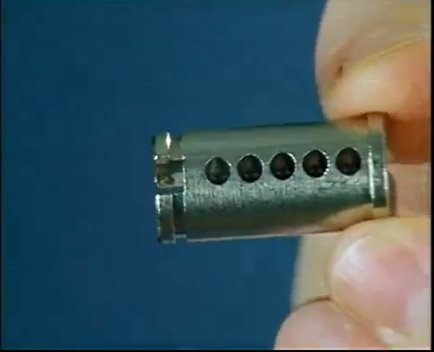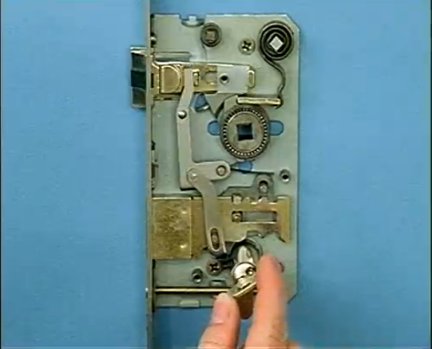Project:Lockpicking/Inside lock: Difference between revisions
From London Hackspace Wiki
(→The Pins Inside the Lock: duh, need to learn how to spell.) |
mNo edit summary |
||
| (4 intermediate revisions by 3 users not shown) | |||
| Line 45: | Line 45: | ||
[[File:Lock-key-pins.jpg|border|center|text-bottom|''Key with the right code'']] | [[File:Lock-key-pins.jpg|border|center|text-bottom|''Key with the right code'']] | ||
<center>In order for a lock to open, all pins must be aligned on the | <center>In order for a lock to open, all pins must be aligned on the shear line. This is the function of the key. The cuts in the key correspond to the length of the pins inside the lock. This image shows five top pins aligned neatly to the key above.</center> | ||
<br> | <br> | ||
| Line 51: | Line 51: | ||
[[File:Lock-key-sheerline.jpg|border|center|text-bottom|''right key inside lock, sheer line'']] | [[File:Lock-key-sheerline.jpg|border|center|text-bottom|''right key inside lock, sheer line'']] | ||
<center>In this image, we can see that the right key is inside the lock. We see that all the pins are aligned neatly. We can see that there is a space between the top and bottom pins which we call the <i> | <center>In this image, we can see that the right key is inside the lock. We see that all the pins are aligned neatly. We can see that there is a space between the top and bottom pins which we call the <i>shear line</i>. In the present state, the lock can turn and open since no pins are blocking the movement of the lock.</center> | ||
<br> | |||
[[File:Locks-shearline-open.jpg|border|center|text-bottom|''Lock opened at the shear line'']] | |||
<center>This image shows us the lock opening since all the pins are neatly arranged at the shear line. The key has two functions: 1) to align the pins at the shear line and 2) with tension, to turn the lock open.</center> | |||
<br> | <br> | ||
| Line 57: | Line 62: | ||
[[File:Lock-behind-key.jpg|border|center|text-bottom|''View from behind with right key'']] | [[File:Lock-behind-key.jpg|border|center|text-bottom|''View from behind with right key'']] | ||
<center>Here we see the right key in the lock and we see that all pins are aligned neatly on the | <center>Here we see the right key in the lock and we see that all pins are aligned neatly on the shear line and that there are no pins blocking the lock. Thus, the lock can turn open</center> | ||
<br> | <br> | ||
| Line 67: | Line 72: | ||
[[File:Lock-wrong-key.jpg|border|center|text-bottom|''Wrong key in the lock'']] | [[File:Lock-wrong-key.jpg|border|center|text-bottom|''Wrong key in the lock'']] | ||
<center>In this image, a wrong key is in the lock. You can see clearly that the | <center>In this image, a wrong key is in the lock. You can see clearly that the shear line is blocked. The shear line is blocked by either the top pin or the bottom pin.</center> | ||
<br> | <br> | ||
| Line 94: | Line 99: | ||
<br> | <br> | ||
[[Category:Guides]] | |||
Latest revision as of 21:38, 28 May 2013
Inside a Lock
Have you ever wondered (or cared) what is inside a lock? How does a lock close and how does a lock open? For this example, we have taken a "eurocylinder" The eurocylinder is the most used door lock in Europe.
Overview of inside a lock
The Pins Inside the Lock
Function of the key inside the lock
Example of the Wrong Key in a Lock
Other parts of the Euro Cylinder
How does the lock open the door?
